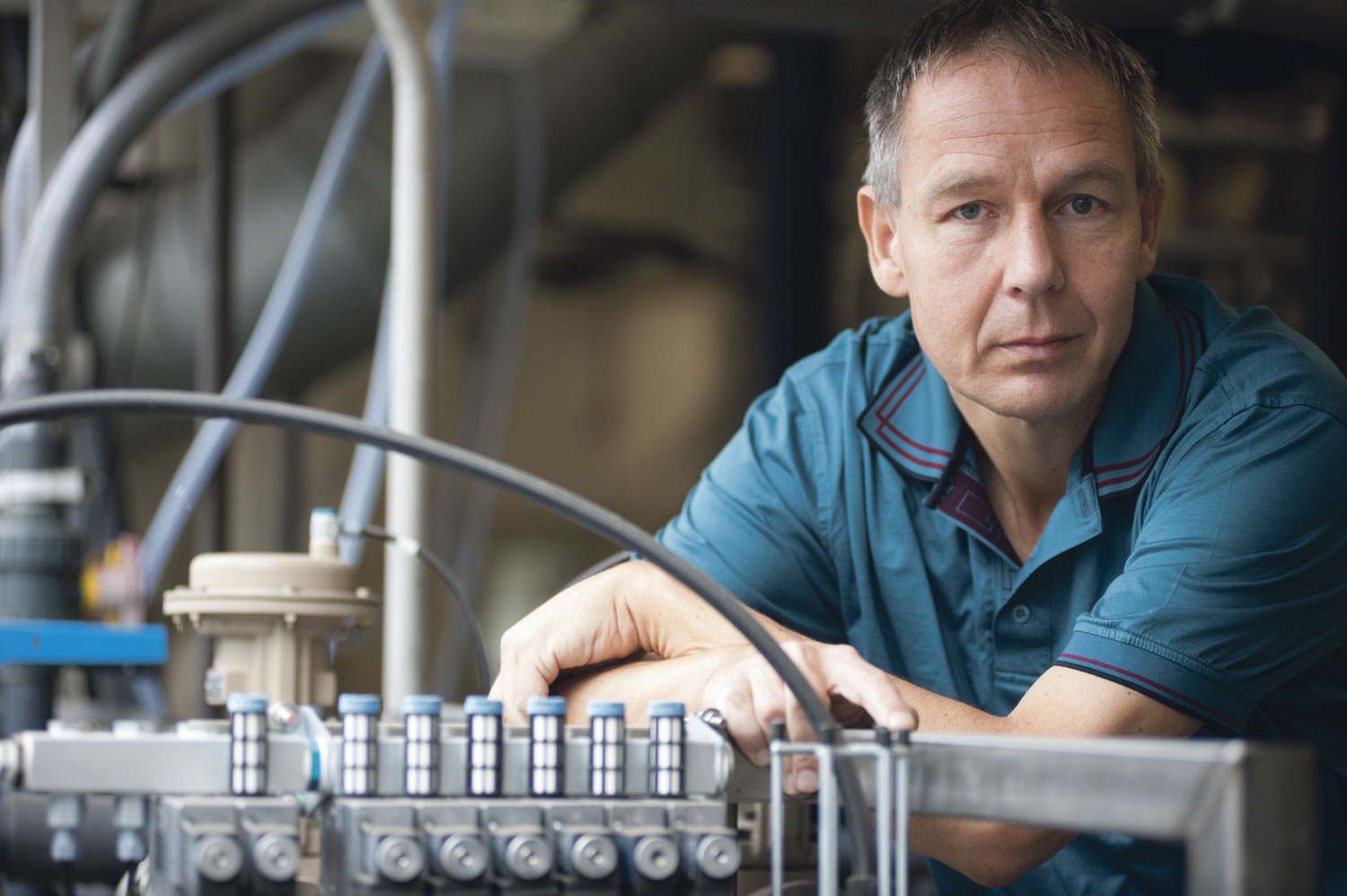Professor Geert-Jan Witkamp will receive the DOW Energy Prize on Thursday. His separation technology based on freezing uses only 15 percent of the energy needed for evaporation.
About a quarter of all the world’s energy is used for industrial separation processes, Professor Geert-Jan Witkamp (3mE) estimates. Back in 1995, when the professor came across the accidental effect of salt being separated from a freezing solution, he decided to use the phenomenon as the foundation for a new separation process called ‘eutectic freezing crystallisation’, or EFC for short. Prof. Witkamp discovered that when lowering the temperature of ice slurry, one encounters the crystallisation point (eutectic point) of the salt solution. The salt, which typically sinks to the bottom of the crystallisator, may then be retrieved in pure crystals, while pure water ice drifts on top of it. Although many in the industry regarded freezing as a cumbersome and expensive technology, Prof. Witkamp demonstrated his technology at various sites using a mobile installation on the back of a truck. He showed the energy used for purification could be reduced by some 90 percent.
Fifteen years on, EFC has been demonstrated in mining, the chemical industry, and in manure treatment. Larger installations are now under design. EFC separation, a TU-owned company, tests the technology for Shell, Umicore, BASF and others. “All over the world, Witkamp’s ideas are gaining influence,” said jury chairman, Professor Wim Van Swaaij.
The jury of the DOW Energy Prize also noted that the development of eutectic freezing crystallisation has proved to be a fertile ground for MSc and PhD students: two PhD students graduated with honours, another was awarded the DOW thesis award, and yet another was honored as the best TU Delft graduate. Van Swaaij: “Quality breeds quality.”
Meanwhile, Prof. Witkamp is developing other innovations in process technology. He believes that by combining reverse osmosis to concentrate process streams, with eutectic freezing for separation, a foundation can be laid for creating industrial processes that produce no waste. In Prof. Witkamp’s vision, we will derive our energy from sunlight, harvest organic raw materials from biological processes, and recycle the inorganic materials.
Bart Lammers woont in Solheim, op de Ruys de Beerenbrouckstraat. Hij is in augustus natuurkunde gaan studeren, lid geworden bij DSC, en in dit corpshuis komen wonen. De drie HJ’s delen samen deze studeerkamer en twee slaapkamers. Bart slaapt bij een andere HJ op een kamertje van twee bij drie, in een stapelbed. De studeerkamer maakt veel goed, die is ongeveer zes bij acht meter. De HJ’s horen twee keer per dag thee te zetten, vuilnis en glasbak bij te houden en de deur open te doen. In de winter ze moeten ze sneeuwruimen en bladeren scheppen, ‘s zomers het gras maaien. De maaier is elektrisch, maar de tuin is zo groot dat je daar toch snel twee uur mee zoet bent.



Comments are closed.